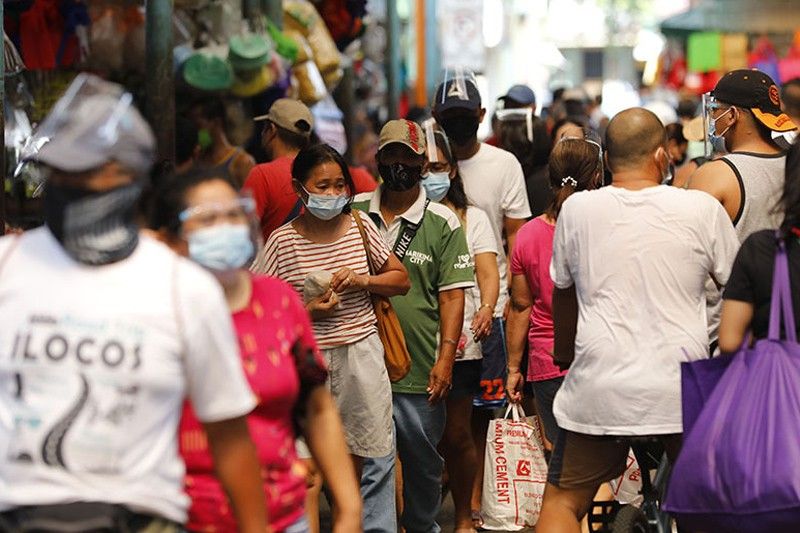Recognizing the threat of inflation, Duterte gov't tempers growth target

MANILA, Philippines — Before leaving office, the Duterte administration lowered the government’s growth target for this year as it recognized the worsening inflation problem that is expected to be a big headache for the incoming president.
At their meeting on Tuesday before a new administration takes over, outgoing economic managers of President Rodrigo Duterte slightly tempered the state’s gross domestic product (GDP) growth goal to 7-8%, from 7-9% previously.
Growth targets for next year until 2025 were retained at 6-7%, according to a statement by the inter-agency Development Budget Coordination Committee (DBCC). To note, the incoming Marcos administration may tweak these growth targets once they take over.
Much of the reasons for the adjustment were due to external risks that are hurting the domestic economy and stoking inflation. Speaking to reporters, Socioeconomic Planning Secretary Karl Kendrick Chua said the “benign” external headwinds that economic officials had observed before are now becoming a big problem.
The DBCC cited a weakening Chinese economy, which is a major trading partner of the Philippines.
At the same time, the DBCC is wary of soaring oil prices as a result of the ongoing Russia-Ukraine war, and rising interest rates in the US that is prompting emerging market central banks like the Philippines to increase borrowing costs.
READ: BSP raises rates for the first time in over 3 years to fight inflation
Already, the DBCC projects inflation to average between 3.7-4.7% this year. If the upper-limit of the forecast range is realized, the government would breach its annual 2-4% target again.
A problem for the next president
That said, a very difficult job is waiting for Ferdinand “Bongbong” Marcos Jr., the presumptive president-elect, as he is poised to inherit an economy that is still in bad shape.
While GDP is poised to return to pre-pandemic level this year after a forecast-beating growth in the first quarter, Marcos would have to make sure that inflation would not crimp consumption anew and ruin the nascent recovery. He also has to fix a job market that was battered by hard lockdowns.
READ: Jobless rate falls in March but inflation may spoil recovery
To make matters worse, Marcos would have to deal with all those economic problems with a very tight fiscal space.
On Tuesday, the DBCC retained its budget deficit cap for this year at P1.65 trillion, equivalent to 7.6% of GDP. To bridge the budget gap, the government would have to borrow money at a time its debt load has already reached alarming levels.
Marcos is so far cool to proposals to sell government assets to generate more revenues for the government — which appears to be a safer move to protect his political capital than imposing new taxes.
But with “higher revenue collections for next year”, the DBCC proposed a P5.268-trillion national budget for Marcos to use next year. The new president, of course, can still revise the budget proposa, but Budget Undersecretary Tina Canda has a warning.
“For prudent fiscal management, we have to stick with a P5.268-trillion budget for 2023,” Canda told reporters. “Now it may be tight but we have to live within that level if we want to be respected in the international financial community,” she added.
- Latest
- Trending





























